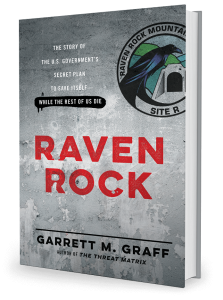This is an odd list for me, because it’s much more heavily historical nonfiction than normal. I did read a lot of fiction this year, but mostly pretty forgettable thrillers as I’ve been trying to learn that genre for the last two years. There were some exceptions: The Ex-Pats, by Chris Pavone, and The Power of the Dog, by Don Winslow, but I didn’t find a lot of great thrillers this year. Particularly, it was a down year of Le Carré books, after a bunch that really wowed me last year.
As I gear up for my next book, I also did a lot of research reading, so this list represents for me actually a relatively high percentage of the non-required reading I did in 2012. And there were a handful of fiction books that I really enjoyed: Kurt Anderson’s True Believers really got under my skin and made me think; Richard Ford’s Canada was a great read over Christmas, and the lyrical The Thousand Autumns of Jacob de Zoet by David Mitchell kept me company for a round-the-world journey back from India.
Without further ado:
1) An Economist Gets Lunch, by Tyler Cowen :: No book did more to improve my life in 2012 than this treatise on eating by a George Mason economist and food lover. Cowen’s approach is that we have a limited number of meals on earth and that each meal should bring the maximum possible enjoyment—a bad meal is an unnecessary negation of life’s pleasures. He provided a lot of tips in the book about how to think about eating, how to explore, range widely cuisine-wise, and generally broaden your eating horizons. I tried very hard to follow his advice—and it opened up untold wonders and happiness for me in 2012: Exploring new suburban ethnic restaurants on a random weekday, trying cuisines I’d never eaten before, and ordering dishes that I’d never consider eating before (one of his recommendations is, at a good restaurant, order the least appetizing-sounding item on the menu because it’s probably the one the chef has put the most work into making taste good).
2) Washington: A Life, by Ron Chernow :: This massive Pulitzer-winning cradle-to-grave biography of George Washington has been on my shelf for years; I finally took a long weekend at Peacham this summer to read it straight through. He makes a very convincing case that Washington is every bit as impressive and worthy of our nation’s hero worship as his legend holds him to be. Coupled with two trips I made to Mount Vernon last summer and fall, Chernow’s book really helped life Washington back into my life and got me interested in the early history of DC—and inspired more than one editor’s letter in the magazine.
3) The Passage of Power: The Years of Lyndon Johnson by Robert A. Caro :: The latest installment of his now four-and-will-be-five-volume biography of Lyndon Johnson, Caro continues his sui generis examination of what made LBJ LBJ. This volume only covers a few years, the 1960 campaign and his time as vice president, ending just a few months after Kennedy’s assassination, but Caro traces Johnson’s careful and calculating use of power through a turbulent time. The vice presidential period is particularly fascinating, as Caro examines how LBJ—who craved power innately—dealt with the powerlessness that his post presented him after his years as Senate majority leader.
4) The Right Stuff by Tom Wolfe :: As the US saw its last space shuttle grounded for good, I went back to read Wolfe’s original classic about the space age and the first crop of astronauts. It’s a book that I’ve wanted to read for probably twenty years—I remember growing up my parents’ copy of the book sat on the bookshelf over our computer and I was intrigued by it from a very early age, although obviously it took me a very long time to actually read it. It didn’t disappoint; Wolfe’s language just crackles, bringing to life the drama and the human stories behind the early test pilots and astronaut program.
5) Confront and Conceal: Obama’s Secret Wars and Surprising Use of American Power by David Sanger, and The New New Deal: The Hidden Story of Change in the Obama Era by Michael Grunwald :: These two books, one by a New York Times reporter and one by a Time correspondent, were the best things written about the Obama administration—both arguing, Sanger on the foreign policy front and Grunwald on the domestic policy front, that the Obama administration actually accomplished a great deal in its first term. Sanger’s insights into China and particularly Iran underscored how important smart, in-depth reporting can be, and Grunwald on energy and health care was the latest in the seemingly-ever-growing pile of evidence of how shoddy day-to-day journalism is today. Grunwald argues that effectively we believe about the stimulus and TARP is wrong—that it was highly effective and has in certain ways fundamentally altered the path of the nation’s economic future in positive ways.
6) The Art of Fielding by Chad Harbach :: Yes, I’ll stipulate this book is, like Jonathan Franzen, effectively “chick lit for smart people” but geez was it a fun read. The first hundred pages or so really made me as a professional writer deeply jealous of his writing ability, although I think the second half of the book was weaker and the ending a bit far-fetched. Still an entertaining weekend read.
7) The Yellow Birds by Kevin Powers :: I really like novella-length books and try to read a couple every year, and I’ll often end up giving them as Christmas gifts, as in past years I’ve done with Mystery Guest and Sense of an Ending. This year, in a twist, I got Yellow Birds as a Christmas gift, and read it quickly over the holidays. The story of two soldiers and their friendship in training and then in Iraq, it was quite moving—and had a very unexpected ending, unfolding in a way much darker and much more emotionally than one expects from the early pages.
8. Kill Decision by Daniel Suarez :: The best thriller I read in 2012, this science-fiction-as-fact novel focuses on what happens when drones and robotic-killing machines begin to migrate—as they inevitably will—back to the United States. Our military monopoly on armed drones won’t last too much longer and you’re already beginning to see a push for private sector and law enforcement drones domestically. Suarez’s techno-thriller really brought the threat home.
9) The Presidents Club: Inside the World’s Most Exclusive Fraternity by Nancy Gibbs and Michael Duffy; Ike’s Bluff by Evan Thomas :: Looking back at this list, I evidently read a lot of presidential biographies this year. Much like Chernow and LBJ, these two books both argue for a deeper, more nuanced understanding of the presidency in the latter half of the 20th Century. Gibbs and Duffy’s book far exceeded my expectations—they trace the relationships between the modern living presidents and ex-presidents, intertwining their stories in a way that highlights just how exclusive their “club” truly is and how there are deep friendships and kindnesses hidden far from the political spotlight. Similarly, Thomas’s biography of Ike exposes him as a much more cunning and successful president as he tends to be portrayed—nothing like the gentile, disconnected golfer his reputation seems to be. Thomas argues that we were lucky to have Ike as president at the dawn of the nuclear Cold War because perhaps only he was strong enough to threaten nuclear war while restraining the military sufficiently from actually going to nuclear war.
10) The Path Between the Seas by David McCullough :: The history of the Panama Canal, as told as masterfully as McCullough tells every topic he tackles, this book traces both the abandoned French attempt to build the canal and then the successful American attempt. I had known nothing of the French expedition before diving into McCullough’s book; beyond that, though, we have an oddly large assortment of Panama Canal memorabilia in our apartment, and it was fun to look at the maps and pictures we have and match them up with the book’s tales.
[Check here for my past lists: 2011, 2010, 2009, 2008, 2007, 2006, 2005, and 2004.]


Recent Comments